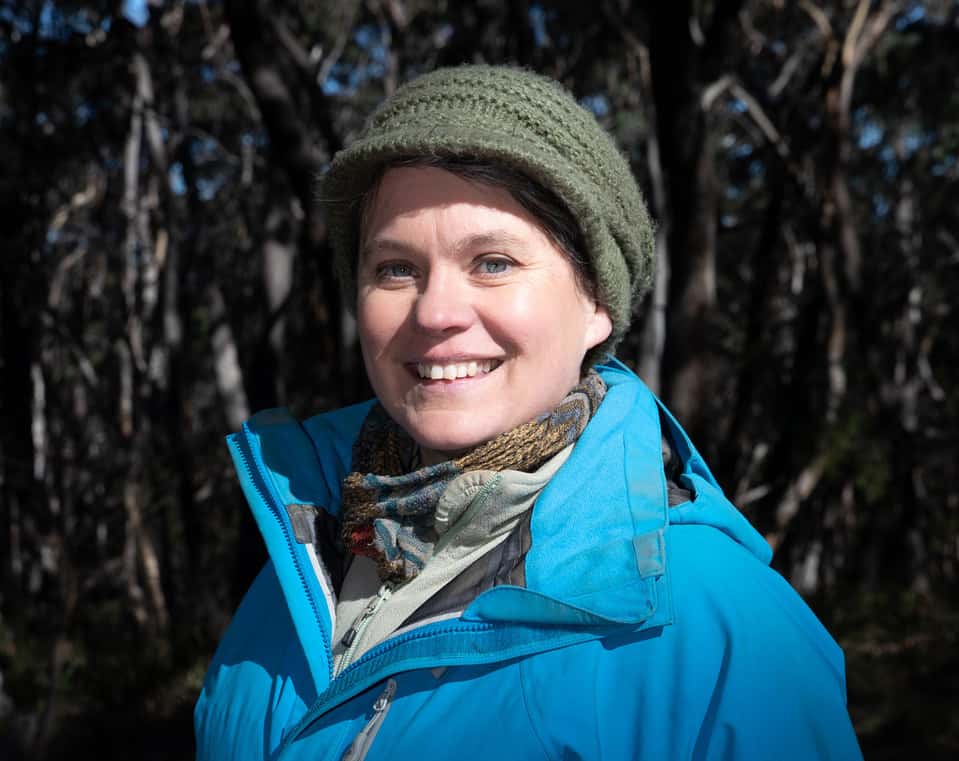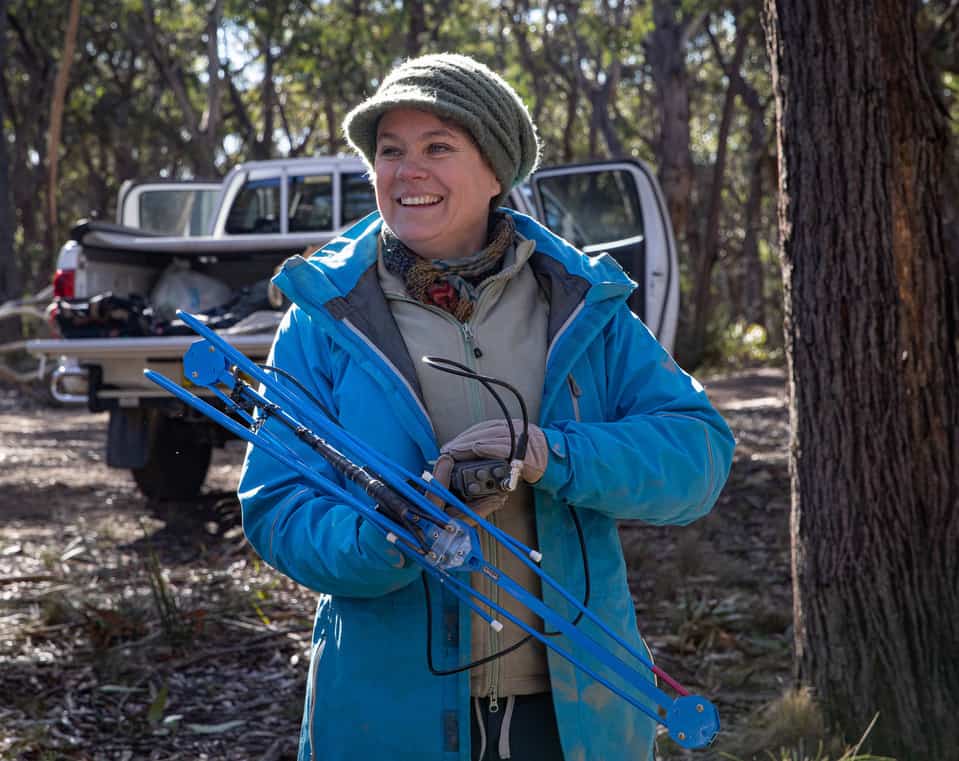Dr Kellie Leigh is Executive Director of not-for-profit organisation Science for Wildlife. She runs the Blue Mountains Koala Project. Her work includes applied research and building partnerships with land managers, communities and volunteers to ensure that on-ground conservation action is as effective as it can be.

'It’s exciting to be working in an area that provides some hope for koalas.
Historically, people have assumed that the sandstone-based protected areas around the Sydney basin would not support significant populations of koalas, and the Blue Mountains was one of those regions. However, the research that we’ve been undertaking since 2013 as part of the Blue Mountains Koala Project has thrown that theory out of the window, along with many others.
Everything we are discovering is new, the country is remote and rugged and there have never been systematic surveys for koalas in this region before. We’re working out where koalas live, what habitats they use, and what threats they face in different areas. It’s a real privilege to be working with koalas in and around a World Heritage Area, at sites from 30 metres to 1,200 metres in altitude, we even radio-track them in snow.
One of our key findings so far is that koalas in the Blue Mountains region have turned out to be incredibly important for conservation of the species.
We recently found that out of 21 populations that we tested across Australia, from South Australia to northern Queensland, Blue Mountains’ koalas contain the highest genetic diversity levels of any population. It’s critical to hold on to the remaining genetic diversity of any threatened species, since that is what allows them to adapt to selection pressures over time and to persist into the future. This genomics study was completed in collaboration with James Cook University, the University of Sydney and San Diego Zoo Global.
The Blue Mountains region is also fascinating because it is listed as a World Heritage Area due to the outstanding diversity of eucalypt species. That means koalas here have more choice of food trees and habitats than anywhere else in the country. We can learn a lot about koala ecology from this area, like why they use some habitats and not others. Already they have broken all the rules. We’re finding them using a huge diversity of habitats including some on poorer soil types where we didn’t expect to find koalas.

The news is pretty good so far. The koala colonies we’re working with at the moment appear to be growing. However, that expansion is taking some koalas out of the protected area and onto developed land so we work closely with communities, and we make sure our research gets translated to people on the ground so it will help reduce threats to the koalas.
People can help with our project in many ways, from reporting a koala sighting to signing up to help with research including scat surveys and koala spotting surveys.
Keen bushwalkers can even train to radio-track koalas to be part of collecting vital scientific data.
We’re really proud to be a volunteer-based organisation. We had over 170 volunteers involved at our first study site. Most of our data is collected by volunteers and students so the knowledge is being embedded into the community and is also building capacity for future conservation.'